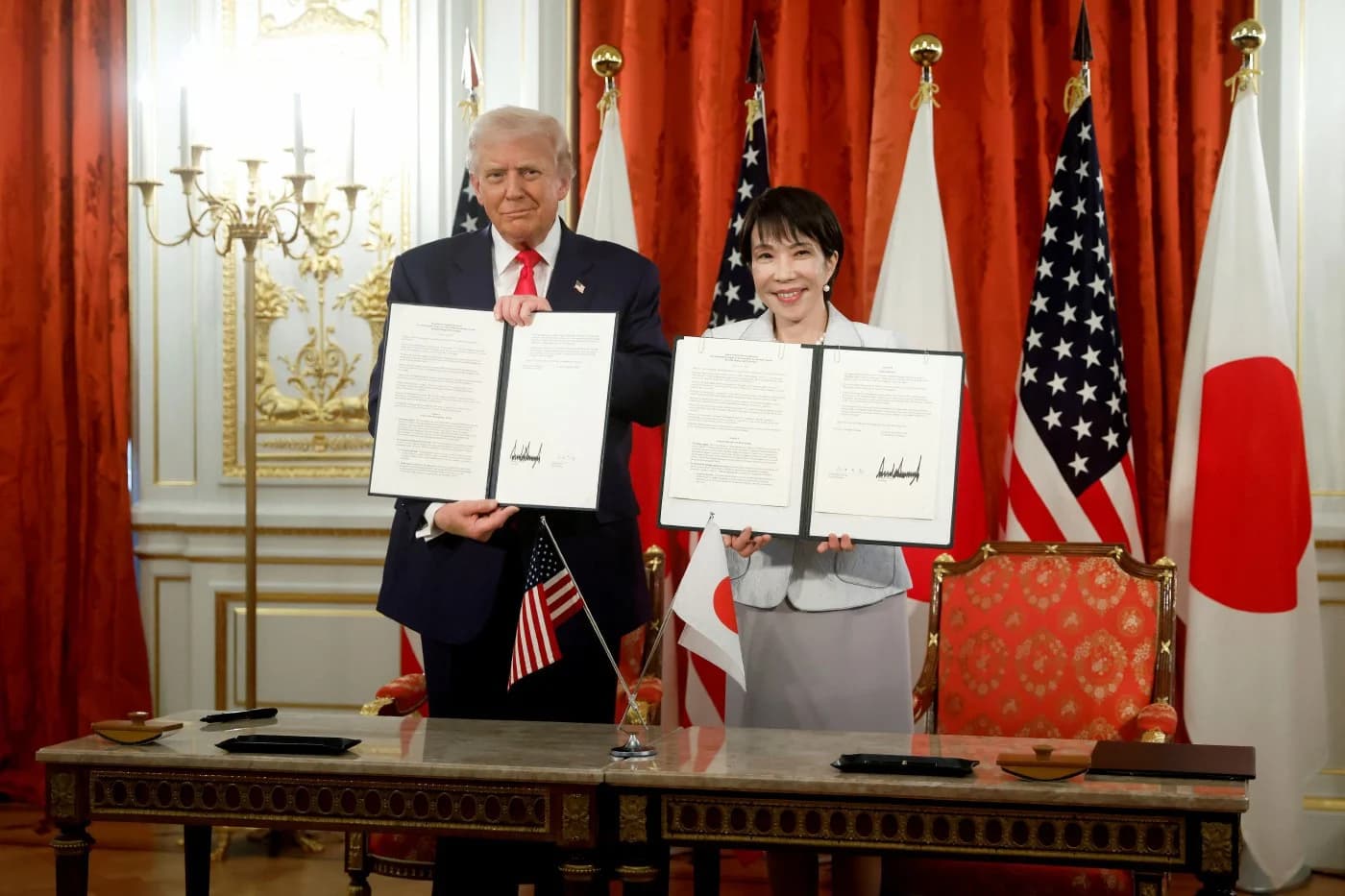We're loading the full news article for you. This includes the article content, images, author information, and related articles.
Japan's new premier nominates the U.S. leader for a Nobel Peace Prize during a Tokyo summit focused on securing critical resources. For Kenya, the deal signals a global realignment in mineral supply chains, potentially impacting African resource strategy.

TOKYO, Japan – Japan’s first female Prime Minister, Sanae Takaichi, and U.S. President Donald Trump declared a “new golden age” in bilateral relations on Tuesday, October 28, 2025, during a high-stakes summit in Tokyo. The meeting culminated in a new agreement to secure critical mineral supply chains and a surprise announcement that Takaichi would nominate Trump for the Nobel Peace Prize for his role in recent global conflict mediations.
The summit, held just a week after Takaichi took office on October 21, 2025, underscored a swift deepening of ties. President Trump, on the second leg of a three-nation Asia tour, praised the new Japanese leader, stating Washington is an ally of the “strongest level.” In response, Prime Minister Takaichi lauded the visit as the dawn of a “new golden age” for the U.S.-Japan partnership.
Central to the talks was the signing of a framework agreement on critical minerals, materials essential for technologies ranging from mobile phones to advanced defence systems. The pact aims to strengthen and diversify supply chains, a move widely seen as an effort to reduce dependency on China. This builds upon a previous U.S.-Japan Critical Minerals Agreement signed in March 2023, which focused on minerals for electric vehicle batteries.
For Kenya and other African nations, this intensified focus on diversifying mineral sources presents both opportunities and strategic challenges. As global powers seek new partners to ensure stable supplies of cobalt, lithium, and other rare earths, African resource-rich countries could become pivotal. However, it also signals increased competition and the need for robust policy frameworks to manage these strategic assets effectively.
In a significant diplomatic gesture, the White House confirmed that Prime Minister Takaichi will nominate President Trump for the Nobel Peace Prize. The nomination recognizes Trump’s recent diplomatic interventions, which Takaichi praised as “unprecedented historic achievement.”
She specifically cited two key events:
This is the second Nobel nomination for President Trump in a week, following one from Cambodia for his role in the same ceasefire agreement.
The summit marks the first major diplomatic test for Prime Minister Takaichi, a hardline conservative and protégée of the late Prime Minister Shinzo Abe. Her election by Japan’s parliament on October 21 made her the nation's 66th prime minister and the first woman to hold the post, a historic milestone in a country with significant gender disparity in politics. Her administration, formed in a new coalition with the Japan Innovation Party, is expected to pursue a more assertive foreign and defence policy, including revising Japan's pacifist constitution.
The meeting in Tokyo solidifies the strategic alignment between the Trump administration and Japan's new government. As both leaders navigate complex domestic and international challenges, their shared focus on economic security and a hawkish stance on regional geopolitics is set to redefine the Indo-Pacific landscape, with far-reaching implications for global trade, security, and diplomacy that will be closely watched in Nairobi and across the continent.
Keep the conversation in one place—threads here stay linked to the story and in the forums.
Sign in to start a discussion
Start a conversation about this story and keep it linked here.
Other hot threads
E-sports and Gaming Community in Kenya
Active 9 months ago
The Role of Technology in Modern Agriculture (AgriTech)
Active 9 months ago
Popular Recreational Activities Across Counties
Active 9 months ago
Investing in Youth Sports Development Programs
Active 9 months ago